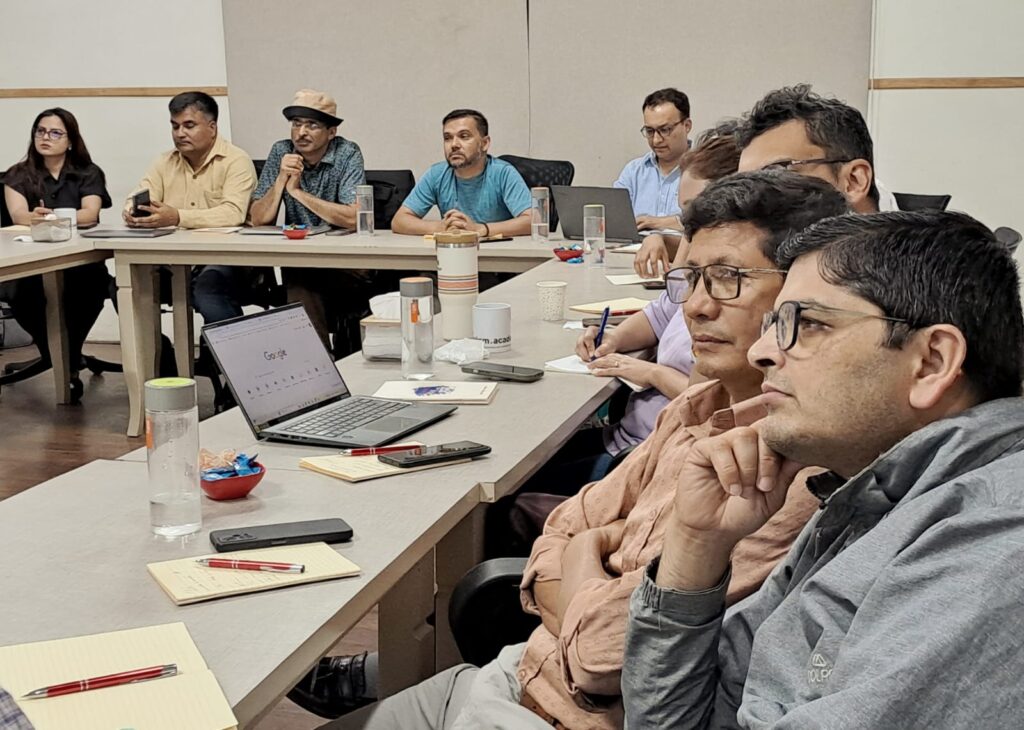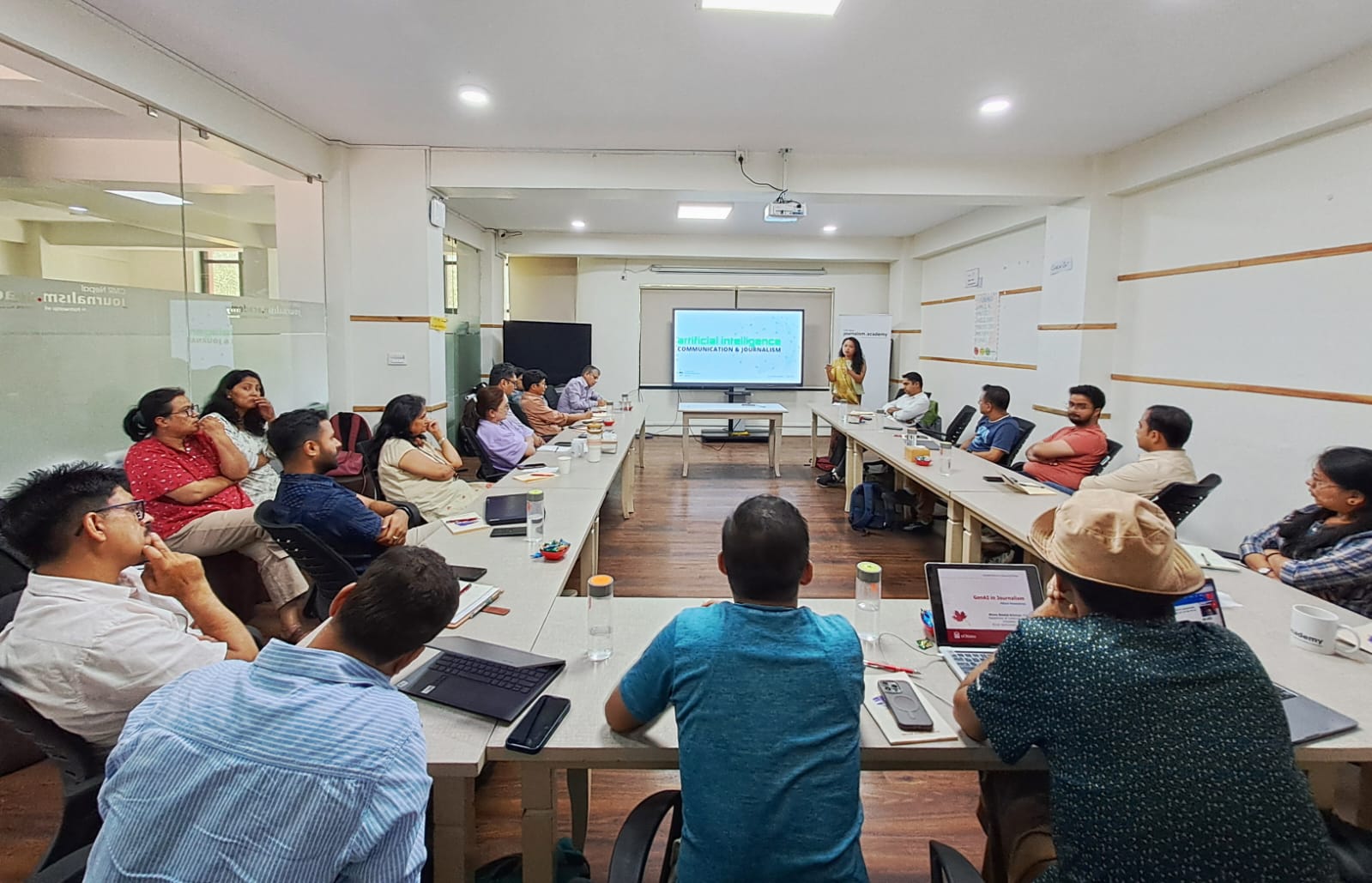The Center for Media Research – Nepal (CMR-Nepal) organized a discussion on Artificial Intelligence (AI), Communication and Journalism with experts in the relevant fields sharing their opinions, ideas and perspectives on the use of AI and its possible impact in the future.
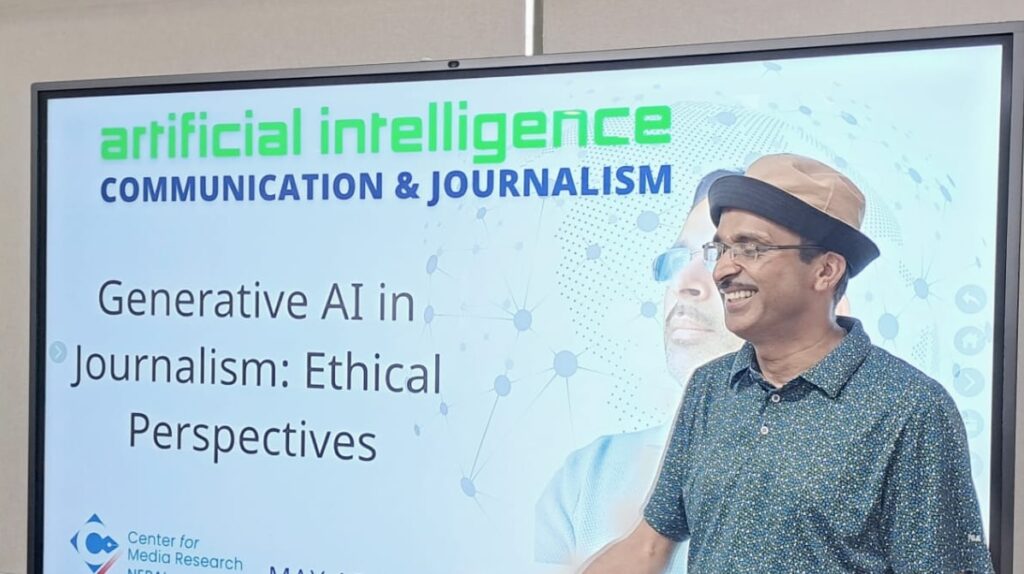
During the program, Prof. Bhanubhakta Acharya of the University of Ottawa said that the use of AI in journalism should be guided by ethics. Dr. Acharya also said that the use of AI has recently led to manipulation of information in audiovisual materials and the spread of deepfake videos.
Stating that the use of AI-generated content by media outlets worldwide has increased, Dr. Acharya added that a code of ethics should be formulated for the use of such content. He also said that more attention should be paid while using content created by third parties.
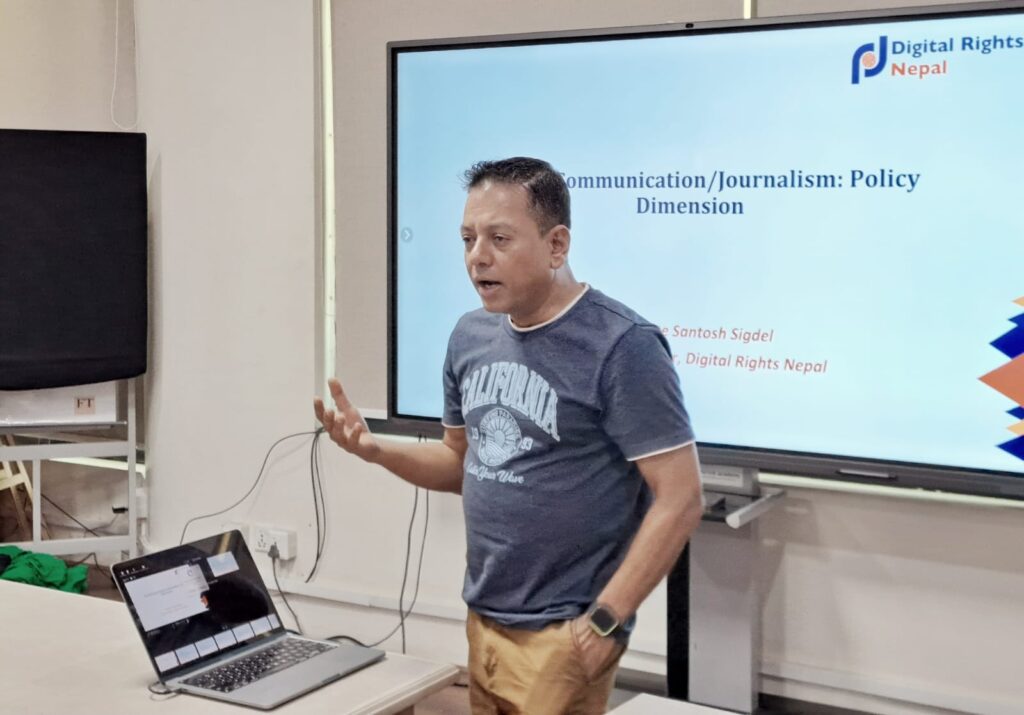
Advocate Santosh Sigdel, Founding President of Digital Rights Nepal and General Secretary of AI Association of Nepal, pointed out the lack of policy regarding the use of AI. Citing the current AI policies in Nepal, Sigdel also talked about the policy and legal frameworks that the government is preparing for AI.
Sigdel also emphasized that there should be a broad discussion on what reforms are needed in the current and upcoming policy and legal frameworks, and that civil society and the media should intervene constructively in these matters.
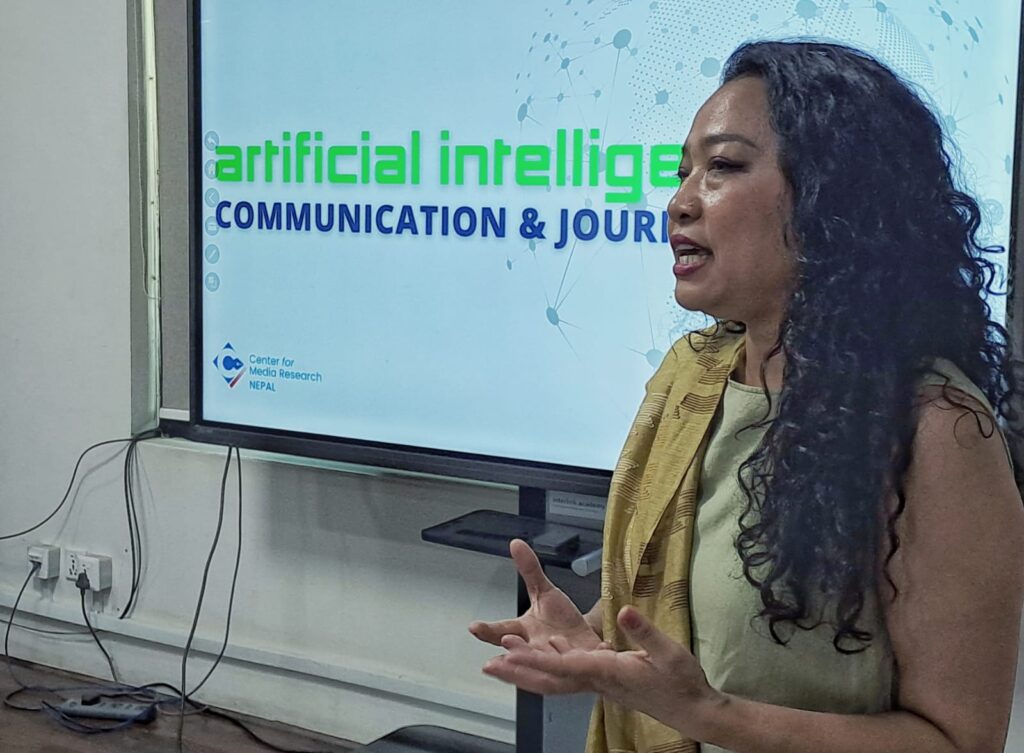
Dr. Dovan Rai, the Executive Director of Body & Data, said that even experts are confused about what AI is and what it is not, and the impact it will bring. She said that AI is not just a technology but also linked to power and money. Rai also said that the content created by AI tends to be biased due to limited data.
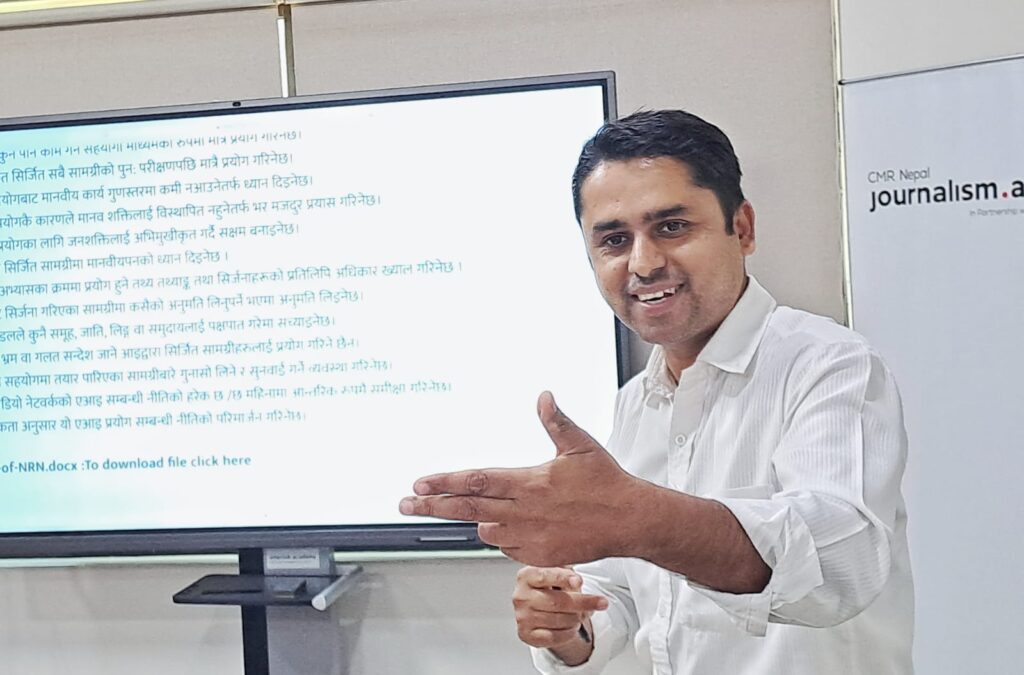
Jeevan Bhandari, the founding chair of Online TV Journalists Association of Nepal, shared his experiences that they have used AI generated video and audio in mainstream television and radio. He also shared AI Policy introduced by Nepali Radio Network.
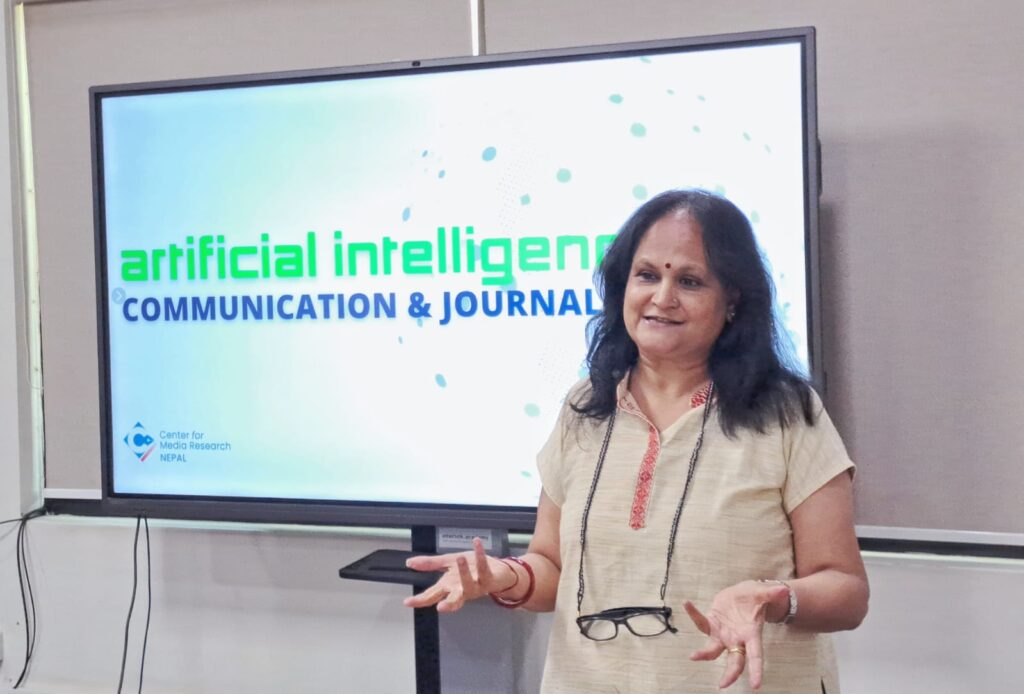
Namrata Sharma, freelance journalist, said that AI cannot be completely trusted. Stating that those who are using AI are not fully aware of potentials and limitations of AI, she stressed that universities should provide good courses on the use of AI. She also stressed that AI platforms should be held accountable through policy and legal management.
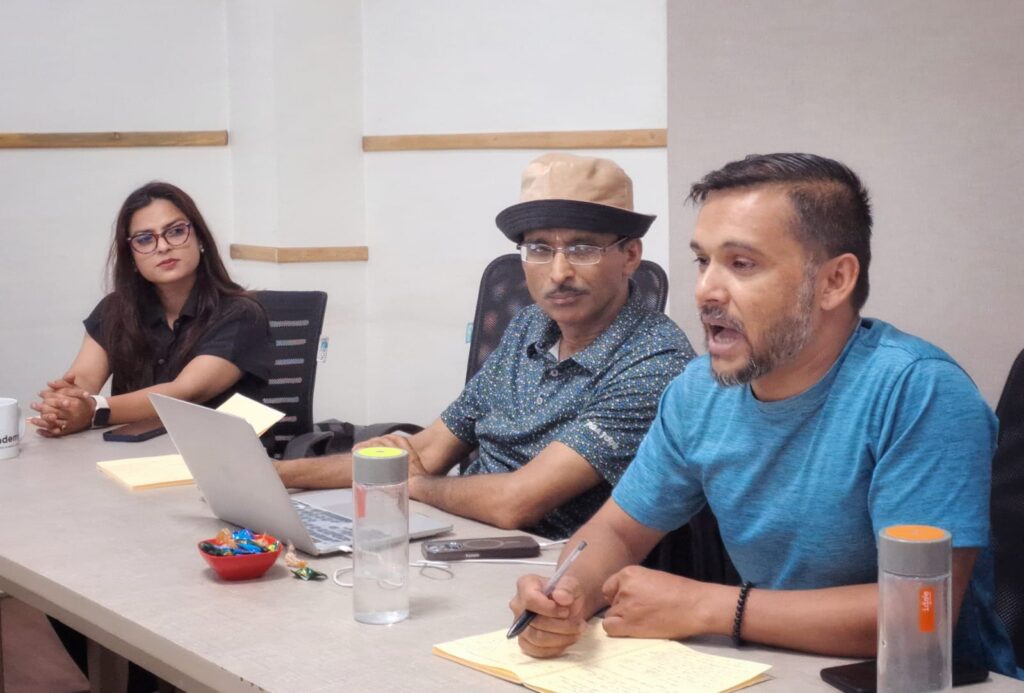
Journalism instructor Rabiraj Baral expressed the view that AI should be used to make news about melting snow in the Himalayas and news about forest expansion. He stressed that media houses should also invest in this.
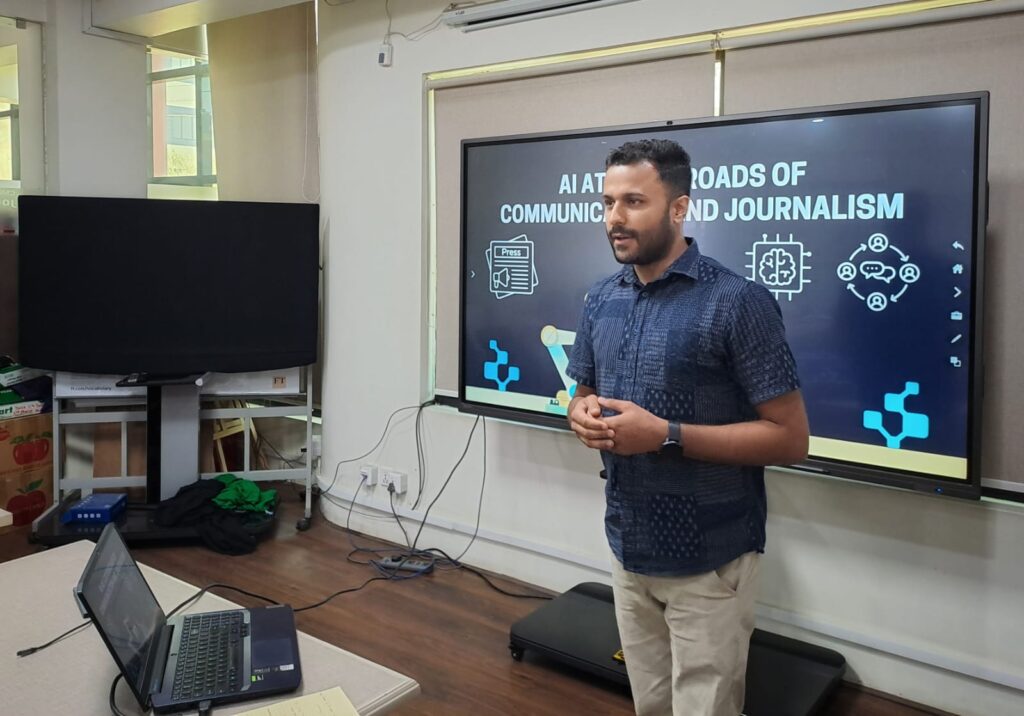
AI scientist Sanjay Khanal discussed recent developments in AI beyond large language models such as AI agents. He said that AI agents can understand the context and access information, do any work and even improve it. He said that technology is being developed that can work in such a way that AI agents can put people’s thoughts into words.
He also discussed in detail the tasks that AI can do in the future and the challenges it will bring.
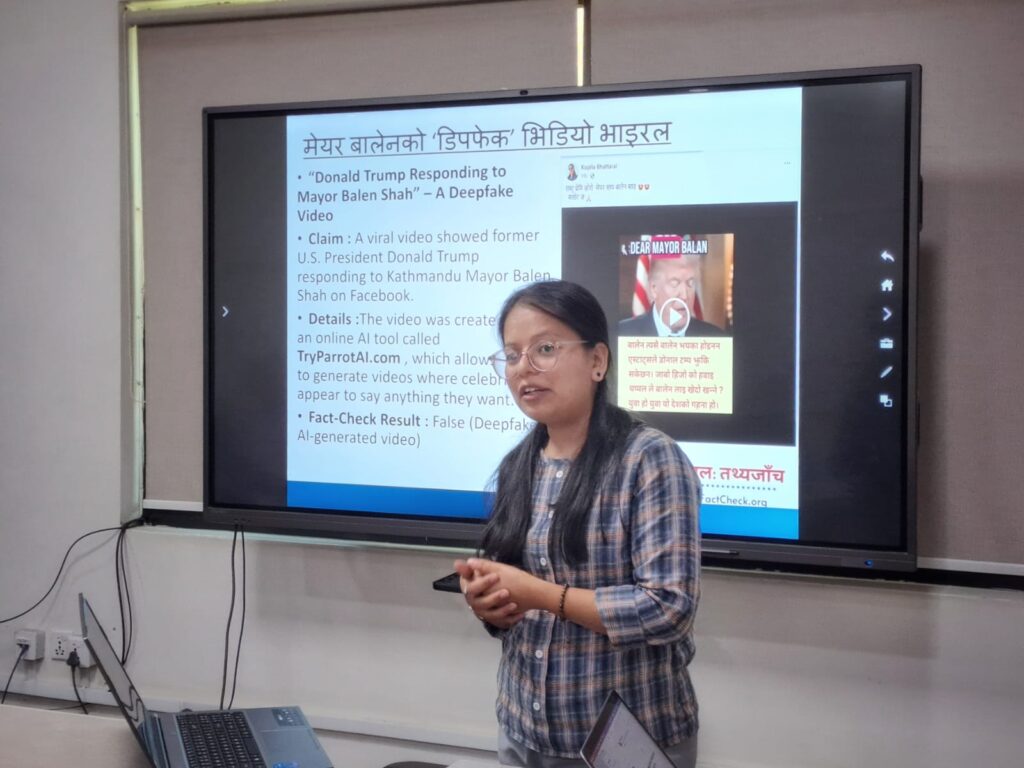
Chetna Kunwar of NepalFactCheck.org said that AI is useful for fact-checking. She said that AI is useful in checking misinformation created through AI.
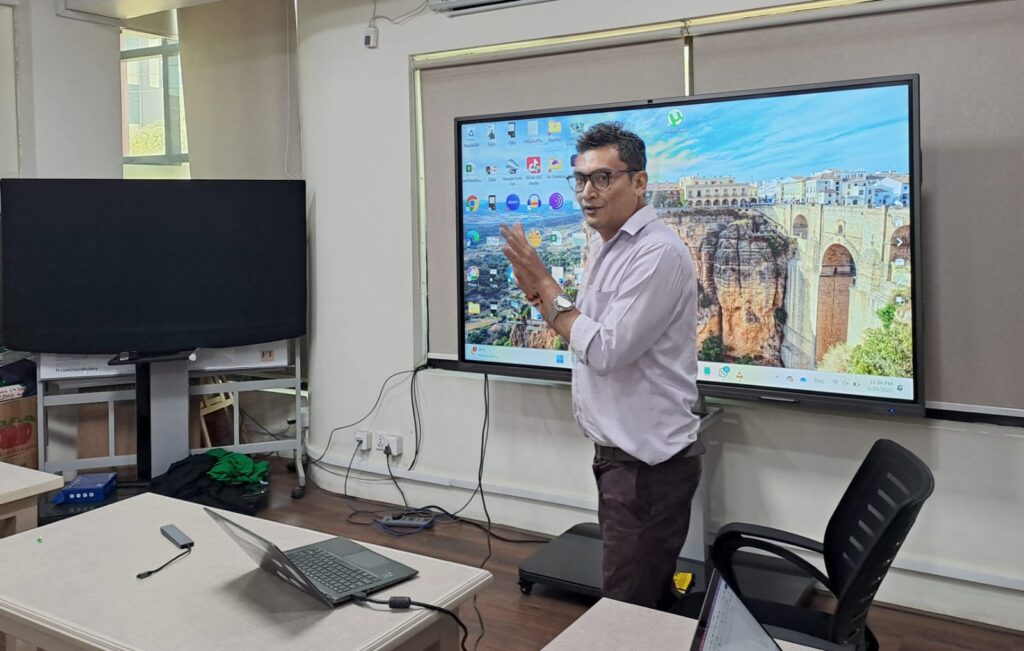
Fact-checking trainer Umesh Shrestha said that the flow of information has become blurred due to AI. He said that this makes it difficult to distinguish between right and wrong. He also warned that misinformation could spread due to AI in the upcoming elections.
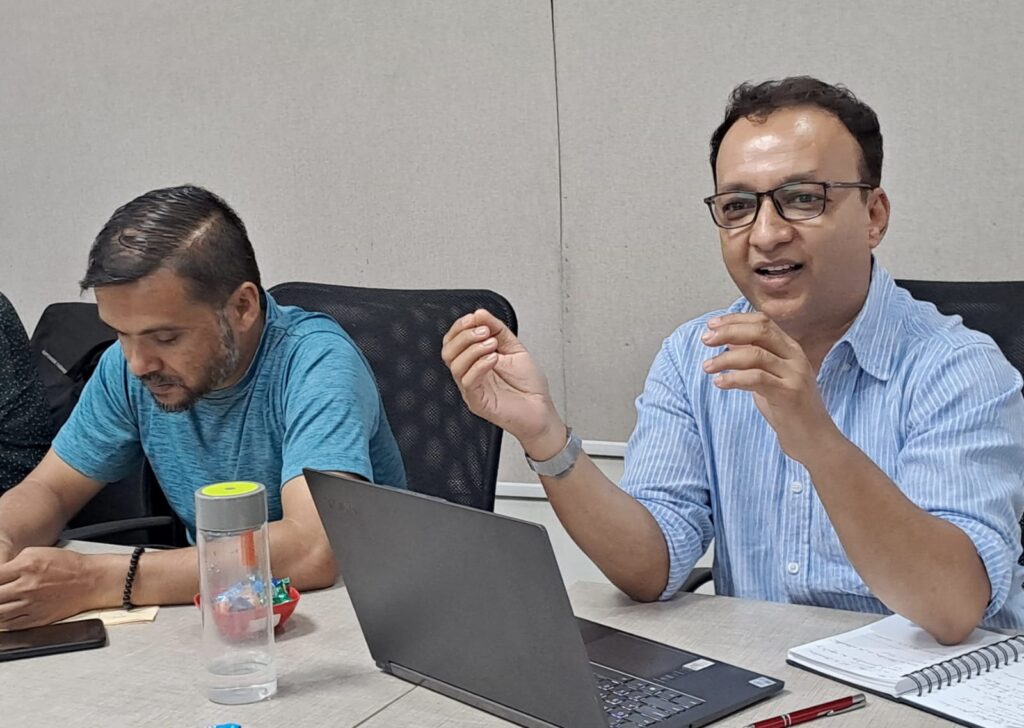
During the program, Ajay Das said that the advent of AI has made it difficult to distinguish between right and wrong and said that there has been a crisis in the meaning and ethics of published and broadcast material. Stating that the main task of journalism is to question and check facts, he said that AI has had a wide impact on this.
Journalist Durga Khanal of Kantipur Daily emphasized that the media should also create AI guidelines to increase its credibility.
Shehnaz Banu, Program Manager of Purak Asia, said that the use of AI cannot be ignored, but attention should be paid to how any work can be done quickly, efficiently and at low cost through its use. She also said that AI can only help in the research and in-depth news that mainstream media is doing, which cannot be done through AI.
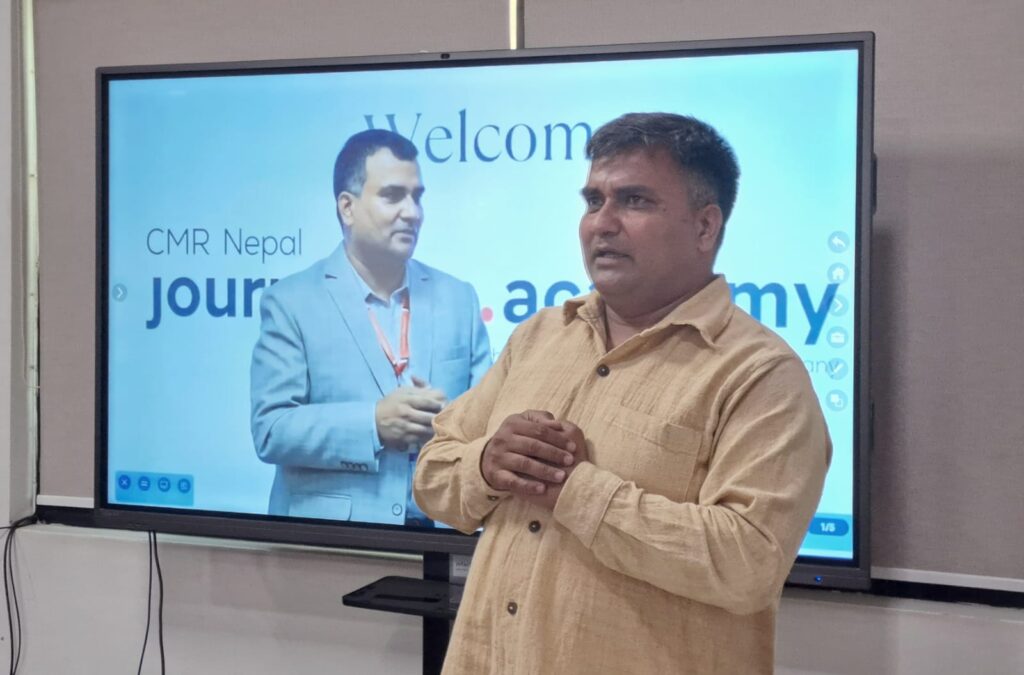
Ujjwal Acharya, the Director of CMR Nepal Journalism Academy, talked about risks and potentials of AI in communication, journalism as well as in labour rights of journalists. He also hoped that the development in AI would not only create misinformation but also help in fact-checking and creating awareness among public about deepfakes.
Earlier, CMR-Nepal Executive Director Tilak Pathak, welcoming the participants, talked about the CMR-Nepal and its activities. He also said that such discussions will contribute to the study and research on this subject in the coming days.
